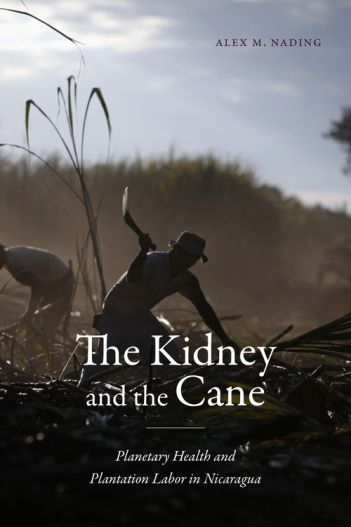Einaudi Center for International Studies
US Immigration Crackdown Has Europeans Rethinking 'America'

Mabel Berezin, IES
Mabel Berezin, director of the Institute for European Studies at Cornell University, provides a perspective on the erosion of trust between Europe and the U.S.
Additional Information
Translucent Atmospherics: Media as Utility in China

February 27, 2026
4:30 pm
Uris Hall, G-08
East Asia Program Lecture Series presents Translucent Atmospherics: Media as Utility in China
Speaker: Angela Xiao Wu, Associate Professor in the Department of Media, Culture, and Communication, New York University
Abstract
Utilities provide essential services like water, electricity, railroads, which societies strive to make affordable and widely accessible. As legacy media lose advertising revenue and “news deserts” proliferate, proposals to treat journalism as a public utility have reemerged. While liberal capitalist societies approach this idea through fragmented evidence and speculative hypotheticals, China has long treated news as a state-supplied, nonproprietary good, akin to earthquake alerts. Since 1978, the state’s stubborn commitment to this utility model has interacted with China's social, economic, and technological transformations, producing surprising configurations of public finance, intellectual property, distribution politics, journalistic forms, and popular culture.
In this talk, I introduce my book-length research tracing the evolution of China’s administration of the socialist press into its regulation of private digital platforms. Reframing media history as utility history, I disaggregate the Chinese state into its lesser-studied roles—as lawmaker, owner, investor, licensor, thinly stretched administrator, and purported guarantor of collective welfare—beyond propaganda and censorship. This perspective sheds new light on post-reform Chinese governance and offers the utility system as a broader framework for thinking about our digital present: What happens to public culture when it is governed through unified computing regimes?
Bio
Angela Xiao Wu is an Associate Professor in the Department of Media, Culture, and Communication at New York University. Her research sits at the intersection of media and communication studies and science and technology studies (STS), with broader interests in the politics and infrastructures of knowledge production. Her work spans critical data studies, platform studies, the political economy of media, political cultures, and post/socialism studies. Her book project has received support from the American Council of Learned Societies (ACLS), the Henry Luce Foundation, the Chiang Ching-kuo Foundation, the American Association of University Women (AAUW), and the Berkman Klein Center for Internet & Society at Harvard University, among others.
About East Asia Program
As Cornell’s hub for research, teaching, and engagement with East Asia, the East Asia Program (EAP) serves as a forum for the interdisciplinary study of historical and contemporary East Asia. The program draws its membership of over 45 core faculty and numerous affiliated faculty, graduate, and undergraduate students from eight of Cornell’s 12 schools and colleges.
Additional Information
Program
Einaudi Center for International Studies
East Asia Program
The Doom Loop — An Economic Portrait of a World on the Brink

Eswar Prasad, SAP
Eswar Prasad, a Cornell University professor, provides expert analysis of global economic instability and policy challenges.
Additional Information
If You Tax Them, Will They Leave?

Cristobal Young, IES
Cristobal Young, a Cornell University sociologist, discusses the unique uncertainty posed by California's proposed wealth tax and its potential impact on billionaire migration.
Additional Information
AI Chip Exports Bill an 'Attempt to Reclaim Congressional Agency'

Sarah Kreps, PACS
Sarah Kreps, director of the Tech Policy Institute and the John L. Wetherill Professor in the Department of Government, comments on proposed legislation giving Congress power over artificial intelligence chip exports.
Additional Information
Rule Breakers

February 11, 2026
4:30 pm
Willard Straight Theatre
Rule Breakers tells the true story of Roya Mahboob, a visionary Afghan entrepreneur and advocate for girls’ education who defies rigid societal norms in her country. In a place where educating girls is treated like rebellion, Roya forms the first all-girls robotics team in Afghanistan and guides them to pursue their dreams in science and technology. As the team’s innovation and success draw international attention, they face mounting opposition, cultural resistance, and real threats, yet their courage, unity, and determination spark a broader movement that has the potential to change their nation forever.
The film focuses on themes of female empowerment, resilience, teamwork, and the transformative power of education. It follows the girls as they overcome personal and political obstacles, travel to competitions, and challenge deep-seated gender barriers in pursuit of their shared goals.
Following the screening, join filmmakers Roya Mahboob and Elaha Mahboob, along with Cornell faculty for a conversation on the film, their work, and the current context for Afghan communities in the U.S. today. The discussion will be followed by audience Q&A.
Free admission! This event is co-sponsored by Cornell Law School’s Migration and Human Rights Program, Berger International Speaker Series, Immigration Law & Advocacy Clinic, Gender Justice Clinic, Dorothea S. Clarke Program, and the Cornell Jeb E. Brooks School of Public Policy.
Additional Information
Program
Migrations Program
Einaudi Center for International Studies
South Asia Program
Southwest Asia and North Africa Program
The Kidney and the Cane: Planetary Health and Plantation Labor in Nicaragua

February 25, 2026
4:30 pm
Olin Library, 108
Join us for a Chats in the Stacks book talk with Alex Nading, associate professor in the Department of Anthropology, as he discusses his latest book, The Kidney and the Cane: Planetary Health and Plantation Labor in Nicaragua (Duke University Press, 2025). Nading follows activists, scientists, and residents in the sugarcane zone who wrestle with the consequences of plantation life. Along the way, he raises critical questions about the capacity of corporations and states to care for people and ecosystems; the ability of citizens and experts to regulate toxic substances; and the future of work on a warming planet.
To attend the talk virtually, please register here: https://cornell.zoom.us/webinar/register/WN_CZSHaSwXQsm_ZP2dRbc5fg
Additional Information
Program
Latin American and Caribbean Studies
Einaudi Center for International Studies
Information Session: Fulbright U.S. Student Program

February 23, 2026
4:45 pm
The Fulbright U.S. Student Program supports U.S. citizens to study, conduct research in any field, or teach English in more than 150 countries. The program is open to graduate students, recent graduates, and young professionals. Undergraduate students who wish to begin the program immediately after graduation are encouraged to start the process in their junior year. Recent graduates are welcome to apply through Cornell.
The Fulbright program at Cornell is administered by the Mario Einaudi Center for International studies. Applicants are supported through all stages of the application and are encouraged to start early by contacting fulbright@einaudi.cornell.edu.
Register for the virtual session.
Can’t attend? Contact fulbright@einaudi.cornell.edu.
Additional Information
Program
Einaudi Center for International Studies
Reppy Institute for Peace and Conflict Studies
East Asia Program
Southeast Asia Program
Latin American and Caribbean Studies
Institute for African Development
Institute for European Studies
South Asia Program
Migrations Program
Open House: The Hum of Life

February 26, 2026
5:15 pm
Johnson Museum of Art
Learn and explore at our exhibition open house celebrating The Hum of Life: A Thousand and One Tales From Bali, free and open to all!
Exhibition cocurator Kaja McGowan will offer an introductory lecture, illuminating the cultural background, narrative elements, and visual aesthetics of the artwork on view. This portion of the event will be available as a live stream.
Afterward, explore the exhibition galleries, connect with members of the Indonesian Students Association at Cornell, enjoy Indonesian snacks, and taste Balinese coffee served by the Cornell Coffee Club.
Support for this program was provided by the Stoikov Asian Art Lecture Fund.
Additional Information
Program
Einaudi Center for International Studies
Southeast Asia Program
Singing Back the Buffalo

February 4, 2026
6:00 pm
Willard Straight Theatre
Award-winning Cree filmmaker Tasha Hubbard’s documentary Singing Back the Buffalo follows Indigenous visionaries, scientists, and communities who are rematriating the buffalo to the heart of the North American plains they once defined, signaling a turning point for Indigenous nations, the ecosystem, and all of our collective survival.
Together with Blackfoot Elder Leroy Little Bear, Hubbard weaves an intimate story of humanity’s connections to buffalo and eloquently reveals how their return to the Great Plains can indeed usher in a new era of sustainability and balance. On her journey, Hubbard explores the challenges faced by buffalo allies and shares the positive steps already taken towards the ultimate – but uncertain – goal of buffalo rematriation. After their dark recent history of almost extinction, and in this time of immense environmental degradation and global uncertainty, the buffalo can lead us to a better tomorrow.
Richly visualized and deeply uplifting, Singing Back the Buffalo is an epic reimagining of North America through the lens of buffalo consciousness and a potent dream of what is within our grasp, thanks to the unwavering vision of Indigenous leaders.
Free admission! Reserve your free ticket through Cornell Cinema. Sponsored by the Migrations Program at the Einaudi Center for International Studies and cosponsored by the American Indian & Indigenous Studies Program.
Additional Information
Program
Einaudi Center for International Studies
Migrations Program
